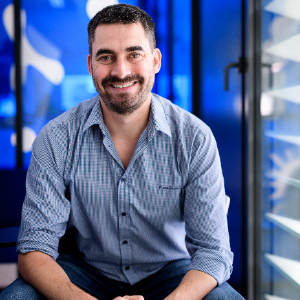Title : System serology approach on COVID-19 patients’ sera reveal specific immune pattern in the heterogeneous population: The COVIDAuRA study
Abstract:
The emergence of multiple SARS-CoV-2 variants as well as the implementation of different vaccination strategies gave rise to multiple immunization schemes in the population and related questions: which immunization strategy leads to the most effective long-term immune response against SARS-CoV-2? What is the impact of the emergence of new variants? To this aim, we evaluated the humoral immune response 6 months post last immunization (infection or vaccination) in nine groups of individuals with different immunization schemes:
|
Group number |
Name |
Short name |
|
1 |
Convalescent mild patients |
ConMild |
|
2 |
Convalescent severe patients |
ConSev |
|
3 |
Vaccinated Convalescent: ChAdOx1-S-nCoV-19 vaccine only |
Con-ChAd |
|
4 |
Vaccinated Convalescent: BNT162b2 vaccine only |
Con-BNT |
|
5 |
Vaccinated Convalescent: BNT162b2 vaccine – 2 doses |
Con-BNT(2) |
|
6 |
Vaccinated Naïve: ChAdOx1-S-nCoV-19 and BNT162b2 vaccines received |
ChAd-BNT |
|
7 |
Vaccinated Naïve: BNT162b2 vaccine – 2 doses |
BNT(2) |
|
8 |
Vaccinated Naïve: BNT162b2 vaccine – 3 doses |
BNT(3) |
|
9 |
Vaccinated Breakthrough Infection |
BNT-BA.1 |
This study was conducted on 180 individuals from different cohorts subdivided into: i) convalescent patients after severe or mild COVID-19 during the first wave of the pandemic. ii) vaccinated convalescent patients (after mild COVID-19 during the first wave of the pandemic) who received either one dose of the adenoviral-based vaccine ChadOx1, or one/two doses of the Pfizer BNT162b2 mRNA vaccine. iii) COVID-19 naïve individuals fully vaccinated with two or three doses of BNT162b2 or one dose of ChadOx1 followed by one dose of BNT162b2. iv) individuals vaccinated with two or three doses of the BNT162b2 vaccine followed by a breakthrough infection during the Omicron BA.1 wave. The humoral immune response of each individuals was monitored at 6 months post last immunization, i.e. 6 months post infection or last vaccine dose.
We performed anti-RBD IgG titers, neutralization activity, ADCC activity and Fc binding analyses on sera samples.
A multivariate analysis of the different technologies provided a comprehensive description of the immune status of individuals at 6 months post last immunization. The results could potentially help to better identify vaccination strategies for the different populations.
Audience Take Away:
- Explain how the audience will be able to use what they learn? Next SARS-CoV-2/viral epidemic managemen
- How will this help the audience in their job? Patients management from a clinicians standpoint
- Is this research that other faculty could use to expand their research or teaching? Yes, from technological point of view to scientific knowledge
- Does this provide a practical solution to a problem that could simplify or make a designer’s job more efficient? The results provide information for the management of populations considering next pandemic events (notion of rationale vaccine selection; better address heterologous approaches)
- Will it improve the accuracy of a design, or provide new information to assist in a design problem? It provides new information to assist vaccination strategy design
- List all other benefits. The presentation aims to identify technologies of interest to drive serological analyses in the context of COVID-19 epidemiology and variants of concern. The results and further analyses of correlates of protection could support the rationale selection for vaccine characterization & formulation.



